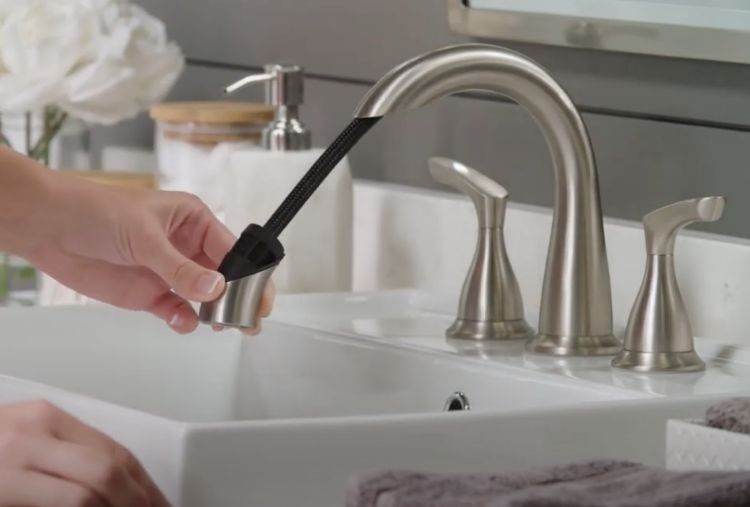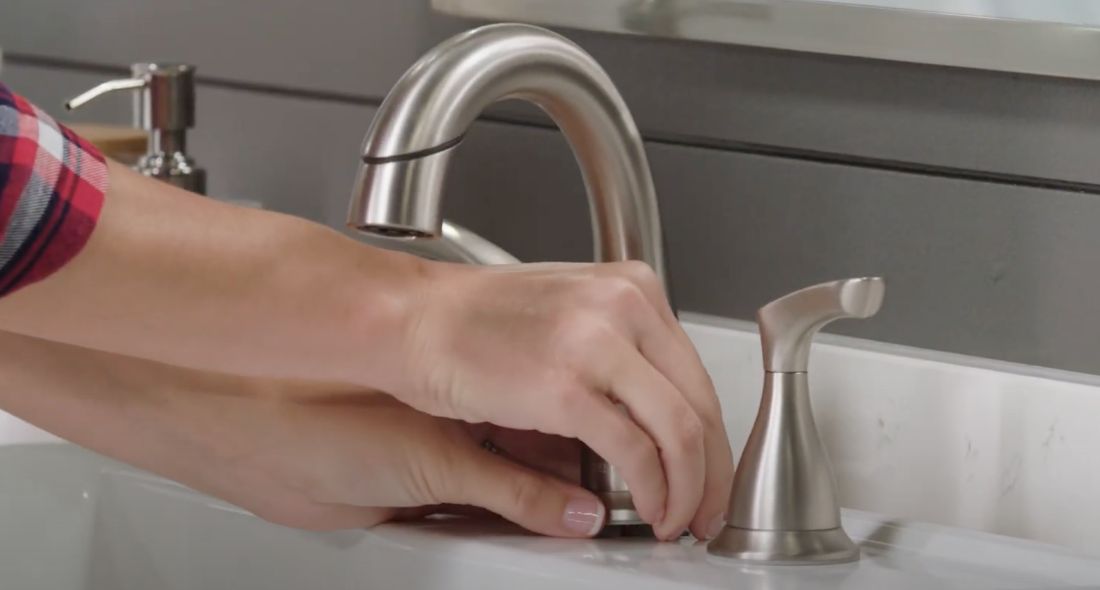Uncovering the Value of Correcting a Leaking Faucet
Uncovering the Value of Correcting a Leaking Faucet
Blog Article
How do you feel when it comes to Why Is It Important To Fix Your Leaking Tap/Faucet??

Trickling taps may look like a small trouble, but their effect exceeds simply the inconvenience of the audio. From drainage to sustaining unnecessary monetary costs and health and wellness dangers, overlooking a dripping faucet can result in numerous repercussions. In this post, we'll explore why it's crucial to address this usual home problem quickly and efficiently.
Wastefulness of Water
Ecological Effect
Trickling faucets contribute dramatically to water wastefulness. According to the Environmental Protection Agency (EPA), a single tap leaking at one drip per second can throw away greater than 3,000 gallons of water annually. This not only pressures water resources yet likewise affects ecosystems and wild animals depending on them.
Financial Costs
Raised Water Expenses
Beyond the ecological impact, dripping taps can inflate water costs considerably. The collected wastage in time translates right into higher energy expenses, which might have been avoided with prompt repair work.
Potential Home Damages
Moreover, long term trickling can bring about harm to components and surfaces surrounding the tap. Water buildup can create discoloration, rust, and even architectural issues if left ignored, resulting in added fixing prices.
Wellness Problems
Mold and Mold Growth
The constant existence of wetness from a dripping tap produces an ideal environment for mold and mildew and mold development. These fungis not just endanger indoor air top quality yet also pose health and wellness risks, especially for individuals with respiratory conditions or allergies.
Waterborne Conditions
Stagnant water in trickling faucets can come to be a breeding place for germs and other virus, raising the threat of waterborne conditions. Contaminants such as Legionella germs flourish in stagnant water, potentially resulting in significant ailments when ingested or breathed in.
DIY vs. Professional Repair
Advantages and disadvantages of DIY Repair Service
While some may attempt to fix a leaking tap themselves, do it yourself repairs feature their very own set of challenges. Without appropriate expertise and tools, DIY attempts can intensify the problem or cause incomplete repair services, prolonging the problem.
Advantages of Working With a Specialist Plumber
Employing a specialist plumber guarantees that the underlying root cause of the trickling tap is addressed effectively. Plumbers have the experience and equipment to detect and fix faucet issues effectively, saving time and decreasing the danger of additional damage.
Step-by-Step Guide to Repairing a Dripping Faucet
Tools Required
Prior to attempting to deal with a dripping tap, collect the needed tools, consisting of a flexible wrench, screwdrivers, substitute parts (such as washing machines or cartridges), and plumber's tape.
Typical Tap Issues and Their Solutions
Determine the kind of tap and the particular problem causing the drip. Usual issues include damaged washers, corroded shutoff seats, or defective O-rings. Describe supplier directions or online tutorials for step-by-step guidance on repair services.
Safety nets
Regular Upkeep Tips
To prevent leaking faucets, execute regular maintenance such as cleaning aerators, checking for leaks, and replacing worn-out components promptly. In addition, take into consideration mounting water-saving gadgets or updating to much more efficient fixtures.
Value of Prompt Repair Works
Dealing with leaking faucets as quickly as they're observed prevents additional water wastage and possible damage, eventually saving both water and cash in the long run.
Influence On Residential Or Commercial Property Value
Perception of Well-Maintained Residential Or Commercial Property
Keeping a residential or commercial property in good condition, consisting of addressing upkeep problems like trickling taps, enhances its viewed worth and value amongst potential purchasers or tenants.
Influence on Resale Worth
Characteristics with well-maintained plumbing fixtures, consisting of faucets, command greater resale values in the real estate market. Addressing leaking taps can contribute to a positive impression throughout property assessments and negotiations.
Ecological Responsibility
Private Contribution to Preservation
Taking obligation for repairing trickling faucets lines up with more comprehensive initiatives towards water preservation and environmental sustainability. Every person's actions collectively make a considerable effect on preserving valuable resources.
Lasting Living Practices
By focusing on prompt repair work and embracing water-saving routines, people add to sustainable living techniques that benefit both present and future generations.
Conclusion
Attending to a trickling faucet surpasses plain comfort; it's a vital action towards saving water, minimizing monetary expenses, and guarding wellness and property. Whether through DIY repair services or professional assistance, doing something about it to deal with dripping taps is a small yet impactful method to promote liable stewardship of resources and add to a much healthier, more sustainable future.
How to Fix a Leaky Faucet: Step-by-Step Repair Guide
A leaky faucet may seem like a simple annoyance, but if it's not fixed promptly, that leak could cost hundreds to potentially thousands. From water damage to mold, mildew, and high water bills, even a tiny leak can be catastrophic if left unattended. Damage like this can even affect the overall value of your home, so it's important to take the right approach for leaky faucet repair. You may need the help of a plumber in some cases, but we've got a few tips you can try on how to fix a leaky faucet before calling the pros.
Four Faucet Types
When you're learning how to fix a leaky faucet, the first step is knowing what kind of faucet you're working with! There are four common types.
Cartridge Faucets
Cartridge faucets come in one- or two-handled varieties. In one-handled cartridge faucets, hot and cold water combines in a single cartridge. In the two-handled versions, hot and cold water are controlled separately and mixed in the faucet.
Ball Faucets
Ball faucets have a single lever you push up and down to adjust the pressure and rotate to change the temperature. A slotted metal ball controls the amount of water allowed into the spout.
Compression Washer Faucets
They're the oldest type of faucet, but they're still used in many homes — especially older ones. Compression faucets have two separate handles that, when turned, raise or lower the washer that seals a water valve. This valve stops water from flowing through the faucet when it is turned off.
Disc Faucets
Disc faucets rarely need to be repaired due to their maintenance-free design. The water flow is controlled by two discs — the upper one raises and lowers against a fixed lower disc, creating a watertight seal. If your disc faucet starts leaking, you may need to replace the seals or clean residue buildup from the inlets.
Fixing a Leaky Faucet
Step 1: Turn Off the Water
Whether you're learning how to fix a leaky bathtub faucet or how to fix a leaky kitchen faucet, always turn off the water supply to your working area when you're fixing a leak. The last thing you want is a flood added to your list of things to fix.
Look for the shutoff valves below your sink or around the tub and turn them clockwise to stop the water flow. If your faucet doesn't have shutoff valves, you may need to turn off the water for the whole house. Check to make sure it's off by turning the faucet on. If nothing comes out, you're ready to start the repair.
Step 2: Take Apart the Faucet
How you disassemble your faucet depends on the type of fixture you have. You can use a flathead screwdriver to remove the caps on top of the handle or handles for cartridge and compression faucets. Inside, you should see handle screws. Unscrew these with a screwdriver to remove the handle.
Disc- and ball-style faucets will typically have an inlet screw near the handle, and removing that will reveal the interior of the faucet.
Detach the Valve Stem
For cartridge- and compression-style faucets, you'll see the inner valve stem or cartridge once you remove the faucet handles. If you have a compression faucet, unscrew the brass valve stem. If you have a cartridge faucet, pull out the cartridge. If your cartridge has been in place for a while, it may require some tools or extra force to remove it due to mineral deposits.
Examine and Replace Parts
Once you've removed the parts, check them out to confirm what needs to be replaced. You may see corroded rubber washers, O-rings, stems, or cartridges. On a ball-style faucet, check the seats and springs for damage.
If you need to repair a leaky disc faucet, check the inlet and seals on the lower disc.
Once you determine what parts must be replaced, visit your local hardware store. Bring the damaged parts with you to ensure you can purchase the correct components to replace them.
Clean Valves and Faucet Cavity
If you've removed a stem or cartridge, you may notice mineral buildup in the faucet's threads. Use white vinegar to clean the valve seat by soaking it for a few minutes, then scrub it away with a soft toothbrush and rinse with warm water. You can also clean the interior of the faucet in the same way.
Reassemble the Faucet
Once your faucet is cleaned and the required parts have been replaced, it's time to reassemble it. Put the pieces back together and slowly turn the water supply back on. Doing this slowly is crucial because too much initial water pressure can damage the new hardware you've just installed.
https://homewarranty.firstam.com/blog/how-to-fix-leaky-faucet

Do you like reading up on ? Make a remark directly below. We will be delighted to know your reactions about this blog post. We hope that you come back again before long. Do you know about someone else who is sincerely interested in the niche? Do not hesitate to share it. Kudos for being here. Kindly stop by our blog back soon.
Report this page